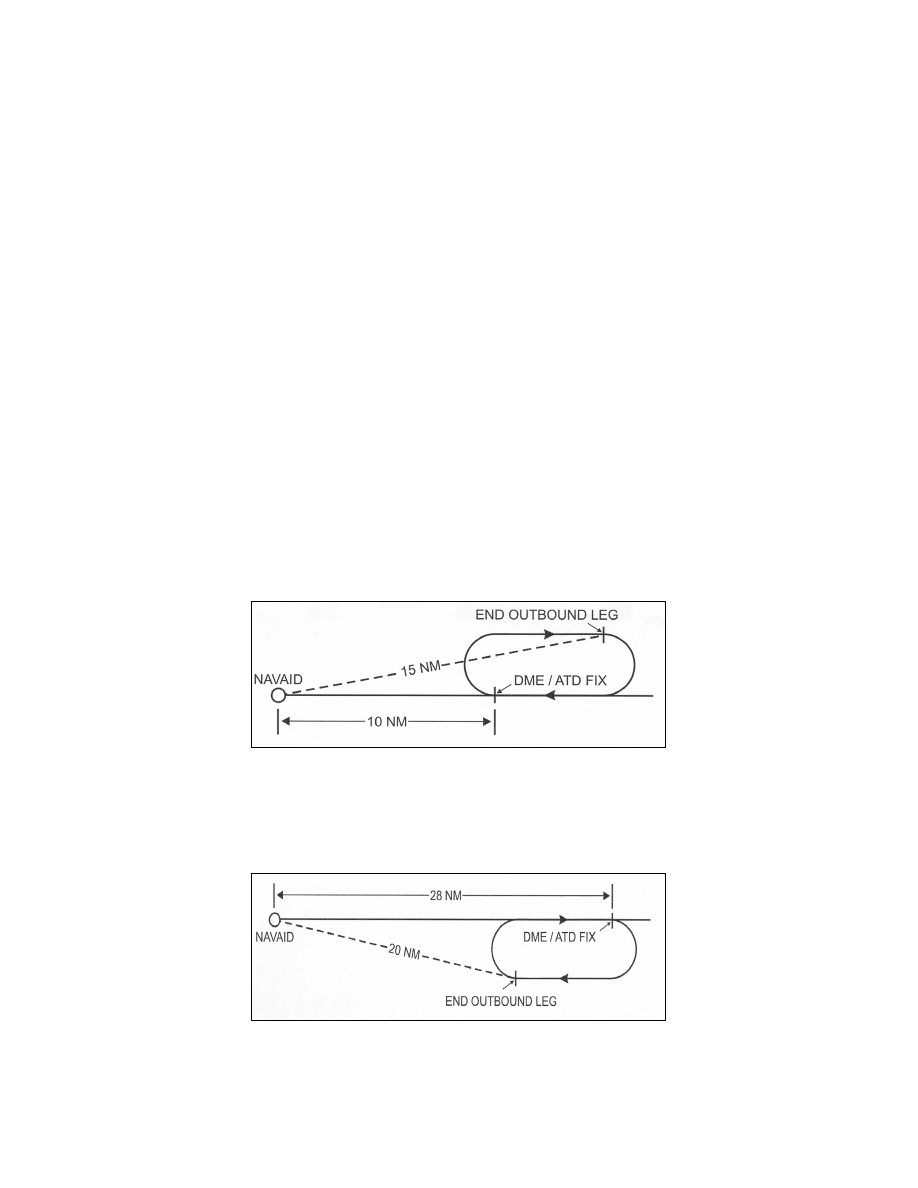
4/20/23
AIM
4. Timing.
(a) Inbound Leg.
(1)
At or below 14,000 feet MSL: 1 minute.
(2)
Above 14,000 feet MSL: 1
1
/
2
minutes.
NOTE
−
The initial outbound leg should be flown for 1 minute or 1
1
/
2
minutes (appropriate to altitude). Timing for subsequent
outbound legs should be adjusted, as necessary, to achieve proper inbound leg time. Pilots may use any navigational means
available; i.e., DME, RNAV, etc., to ensure the appropriate inbound leg times.
(b) Outbound leg
timing begins
over/abeam
the fix, whichever occurs later. If the abeam position cannot
be determined, start timing when turn to outbound is completed.
5. Distance Measuring Equipment (DME)/ GPS Along
−
Track Distance (ATD).
DME/GPS holding is
subject to the same entry and holding procedures except that distances (nautical miles) are used in lieu of time
values. The outbound course of the DME/GPS holding pattern is called the outbound leg of the pattern. The
controller or the instrument approach procedure chart will specify the length of the outbound leg. The end of the
outbound leg is determined by the DME or ATD readout. The holding fix on conventional procedures, or
controller defined holding based on a conventional navigation aid with DME, is a specified course or radial and
distances are from the DME station for both the inbound and outbound ends of the holding pattern. When flying
published GPS overlay or stand alone procedures with distance specified, the holding fix will be a waypoint in
the database and the end of the outbound leg will be determined by the ATD. Some GPS overlay and early stand
alone procedures may have timing specified. (See FIG 5
7.) See paragraph
17, Global Positioning System (GPS), for requirements and restriction on using GPS for IFR operations.
FIG 5
−
3
−
5
Inbound Toward NAVAID
NOTE
−
When the inbound course is toward the NAVAID, the fix distance is 10 NM, and the leg length is 5 NM, then the end of the
outbound leg will be reached when the DME reads 15 NM.
FIG 5
−
3
−
6
Inbound Leg Away from NAVAID
NOTE
−
When the inbound course is away from the NAVAID and the fix distance is 28 NM, and the leg length is 8 NM, then the end
of the outbound leg will be reached when the DME reads 20 NM.
En Route Procedures
5
−
3
−
25